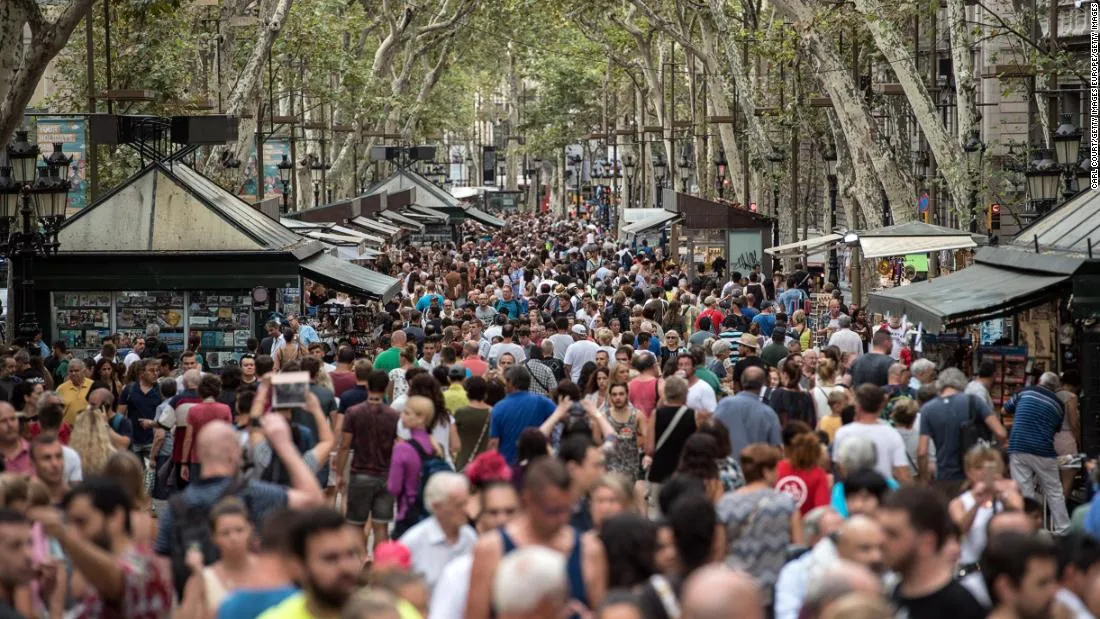By Marianna Tokarcik-Bermudez

During the past years of the Covid-19 pandemic, holiday travel and plans have been disrupted. Indeed, travelling during the pandemic was a challenge due to the different measures implemented by other countries worldwide. A once almost seamless experience for most travellers has become a planning nightmare. As winter break approaches, many are booking their flights to return to see their families or to spend their break at a holiday destination. When considering spending the holidays or travelling in general, we might not consider the environmental and social consequences of travelling or the phenomenon of over-tourism. As a result of this type of mass tourism, pollution is caused, nature is ravaged, and the local population is distressed.
Over-tourism refers to the phenomenon of a mass of tourists congregating simultaneously at a particular touristic location. Often, these places are either famous locations in movies or that are Instagramable, where tourists take selfies and then move on to the next Instagramable location. Touristic destinations are increasingly suffering from this phenomenon, which is devastating in many ways.
Firstly, a significant amount of pollution is caused by over-tourism, which harms the environment. It is usually the flora and fauna which are the first victims of over-tourism in the most popular natural tourist destinations. Environmental issues have caused the destruction of entire ecosystems in some natural destinations. Examples of these
problems include deforestation, soil exploitation, and pollution, all to accommodate tourist needs at these locations. There are instances in which such a situation cannot be rectified, such as what happens to coral reefs worldwide. Corals have been irreparably damaged by global warming and tourists, resulting in an endangered natural system. Sadly, there
is mostly no policy to raise awareness and protect natural environments at these touristic
destinations.
Secondly, the accumulation of waste that is not differentiated is another consequence of mass tourism. As a result, it will inevitably cause a lot of environmental pollution and disposal problems. After years of uncontrolled tourism, Boracay Island in the Philippines closed to restore its ecosystem, for example. In addition to the waste issue in general, the island of Bali is also trying to resolve this problem with help from initiatives like Zero Waste Bali. The issue of waste management in these destinations is primarily due to a lack of resources and public facilities to manage local and tourist waste.
Thirdly, over-tourism affects mainly the local population. In cities like Barcelona or Venice, the effect of over-tourism has unleashed intense tensions among residents. There is a complaint among residents regarding the increase in housing prices and rental rates. Due to the spread of online platforms such as Airbnb for tourist purposes, housing prices and rental rates are inflated. Additionally, they express concerns over the disappearance of small shops, which have been replaced by tourist shops, and the inviolability of their cities. Consequently, residents have been forced to flee their cities, which have become tourist attractions, therefore losing their authenticity.
To conclude, over-tourism has its negative consequences, and both governments and the tourism industry need to take steps to ensure that the environment and the well-being of the locals are protected. As individuals, practicing responsible tourism is the step we can take to reduce the consequences of this phenomenon.
